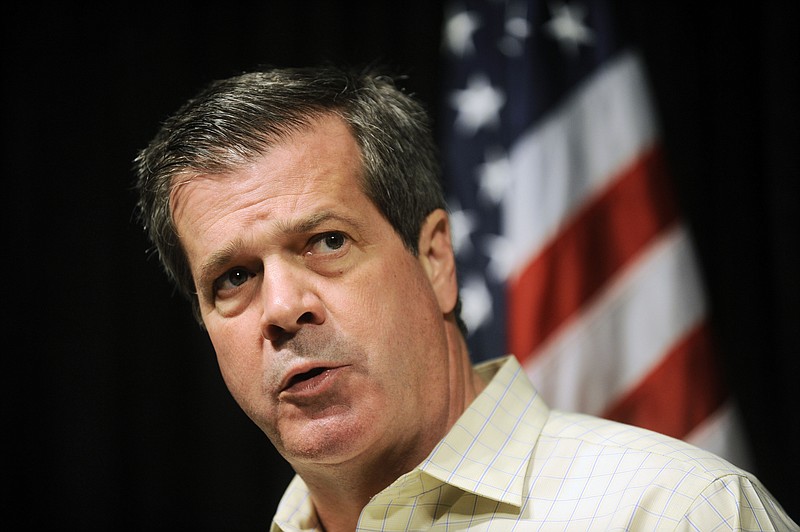NASHVILLE -- The seven candidates vying to become Nashville's next mayor have spent a combined $12.5 million on their bids -- the equivalent of $43 for every registered voter in Music City.
Voters go to the polls Thursday to choose among Councilwoman Megan Barry, attorney Charles Robert Bone, hedge fund manager David Fox, real estate mogul Bill Freeman, Criminal Court Clerk Howard Gentry, charter school founder Jeremy Kane and businesswoman Linda Eskind Rebrovick.
Four of the candidates have spent more than $1 million of their own money on the race to succeed term-limited Mayor Karl Dean, led by the $3.6 million Freeman has poured into his own campaign. Amid the flood of television advertisements, candidate forums, direct mail and yard signs, it's unlikely that any of the hopefuls will reach the 50 percent threshold to avoid a runoff between the top two finishers on Sept. 10.
The election comes as the city seeks to sustain its momentum as a popular destination for tourists, relocating businesses and new residents, while trying to balance its growth with the efforts to preserve the character of the city that made it such an attraction in the first place.
The city's population has grown by 16 percent since 2000 and shows little sign of slowing down. And Nashville's growing traffic problems and transit needs are taking on a new priority amid the familiar refrain -- heard in mayor's races across the South -- that nobody wants the city to become another Atlanta, where rapid growth has been accompanied by notorious gridlock.
Dean said the recognition of a need for transit solutions is a new development since he ran in 2007, when "nobody really paid attention" to his proposals for rapid bus transit.
"Eight years later, it's the No. 1 or No. 2 issue in the city," he said. "Because people want to see it happen."
Although the candidates have generally spoken in favor of public transit, they have offered few specific proposals. The current mayor's own experience may be leading them to exercise caution.
Dean last year abandoned his $175 million plan to create a 7-mile bus route on dedicated lanes to connect the eastern and western sides of the city through downtown. The proposal faced vocal opposition from some businesses and residents in affluent areas on the western section of the route.
But Dean said he considers that setback temporary.
"Southern cities in particular don't have a history of mass transit, and you get into a lot of issues like 'I'm all for transit, but not around me,'" he said. But freer movement in, out and around the city is a quality of life issue for most residents and commuters, he said.
"Nashville is the hub of the region," he said. "And for Nashville to keep its economic prominence, you're going to need high-quality transit."
Dean's predecessor, Bill Purcell, agrees.
"People can fly into Nashville, do a full day of business, go back to the airport and fly out," he said. "That's not easy in New York, it's very hard in Los Angeles, it's not simple in London."
Residents who remember not too long ago being able to reach any point of the city within 10 or 15 minutes find the traffic jams all the more grating, he said.
Although the level of spending on the Nashville's mayor's race has come as a surprise, self-funding by candidates is not a new phenomenon. Phil Bredesen, then a fairly unknown health care entrepreneur, in 1987 spent more than $3 million -- or more than $6.3 million in today's dollars -- on his first race for mayor. He lost that bid, but won in his second try, and later served two terms as governor.
And Dean, the current mayor, spent more than $1 million on his successful bid in 2007.
Purcell said he was encouraged that so many candidates want to drop so much money on running for the office.
"There was a time when most people, including me, would say, 'No, you run for mayor,'" he said. "What's happened since the late 1990s in most of America is a recognition that it's the mayor of a city that plays the critical role in assuring your quality of life."
